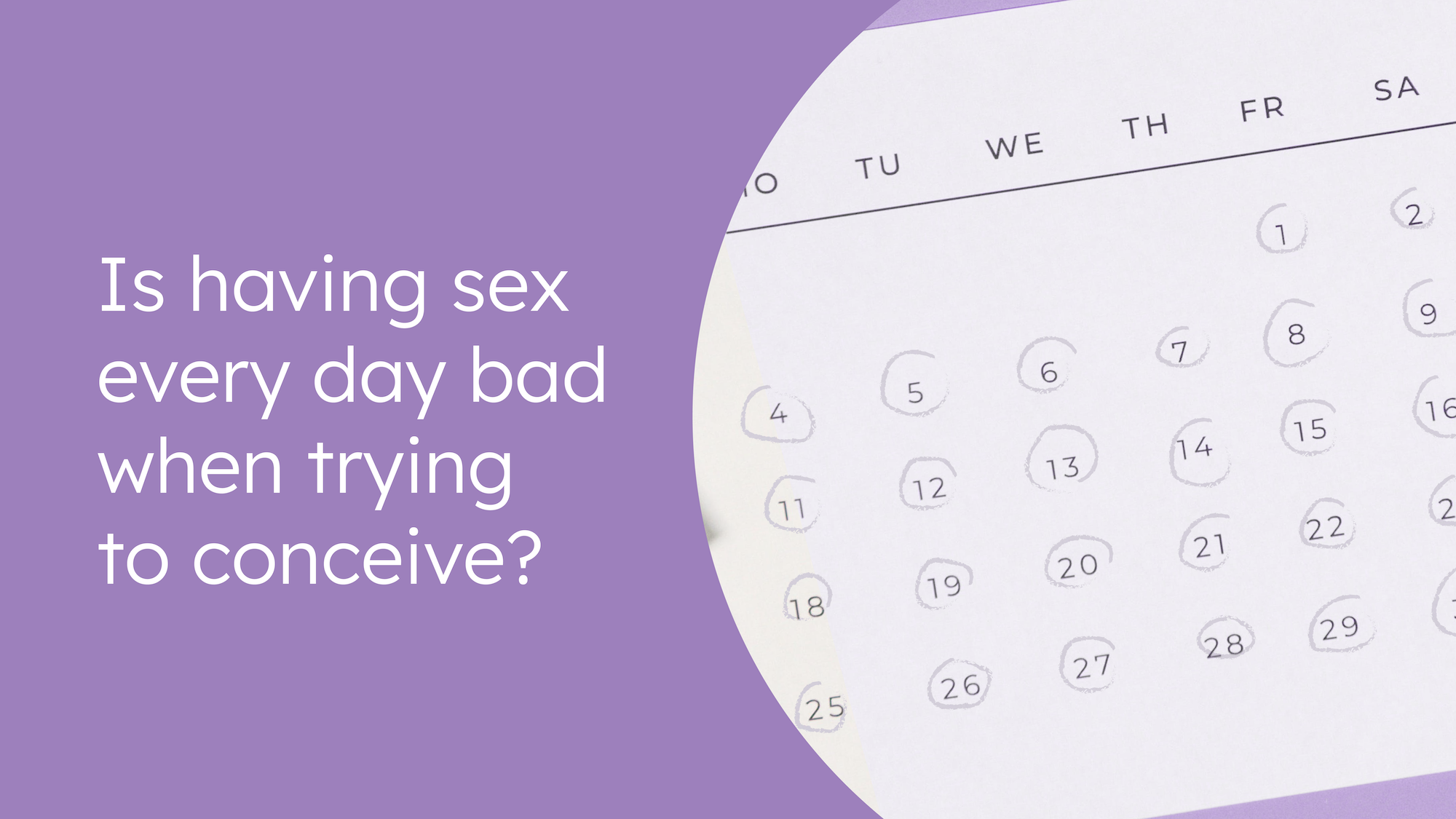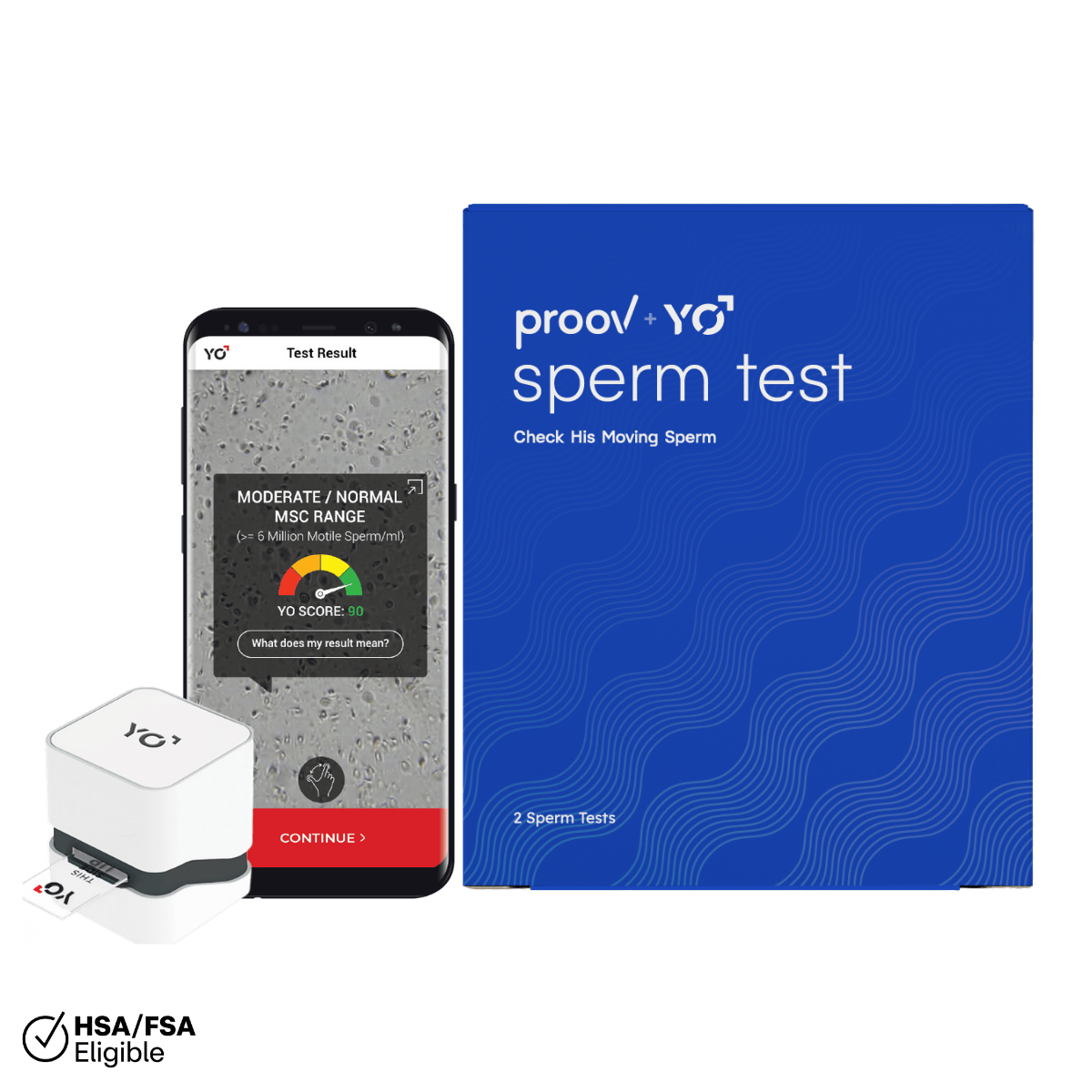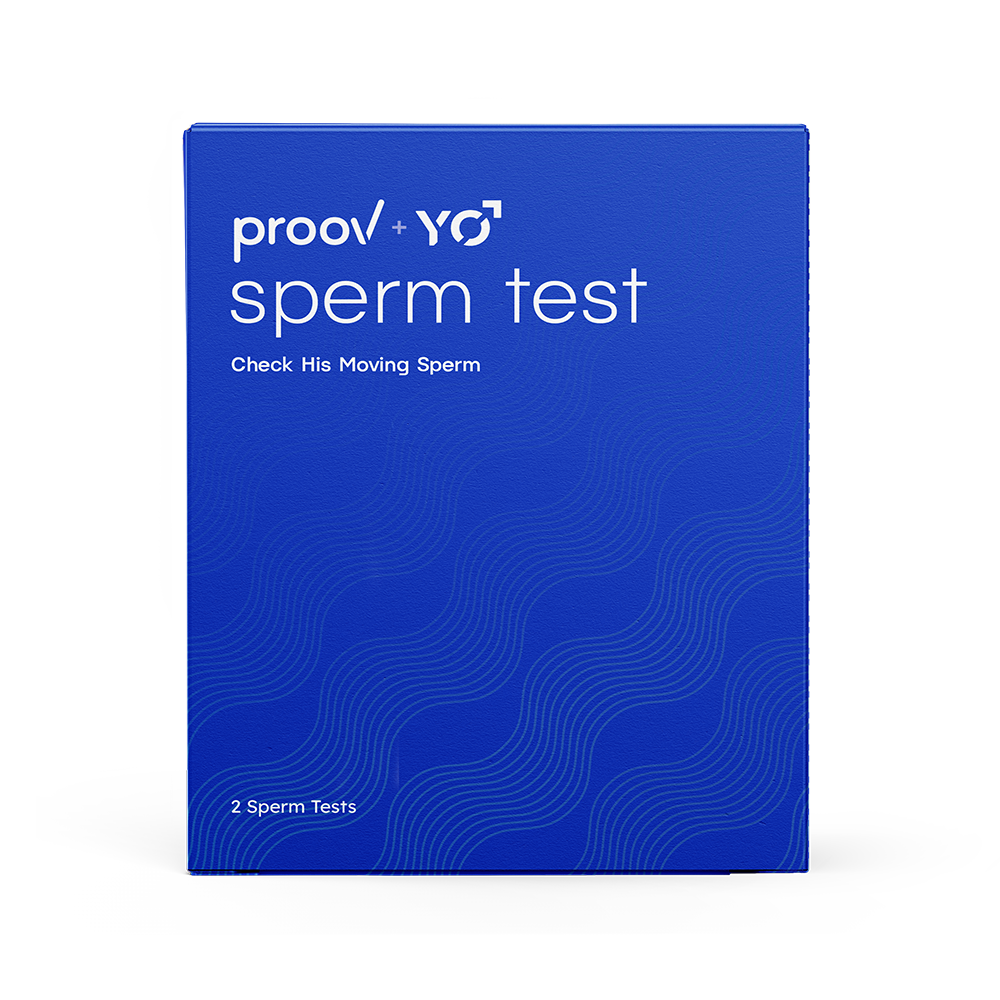If you’re trying to increase your chances of getting pregnant, and you may consider having sex every day. Or, if you already do, you might wonder if having sex every day is a necessary step when it comes to getting pregnant.
Is daily sex good for pregnancy? The good news is that having sex daily does not harm your health or lower your chances of getting pregnant. But sex might start to feel somewhat like a chore if it becomes a daily routine.
If you’re trying to get pregnant naturally with a male parter, having sex is a critical piece of the pregnancy puzzle. But do you need to have sex every day to increase the likelihood of becoming pregnant? Let’s find out.
Is having sex every day bad when trying to conceive?
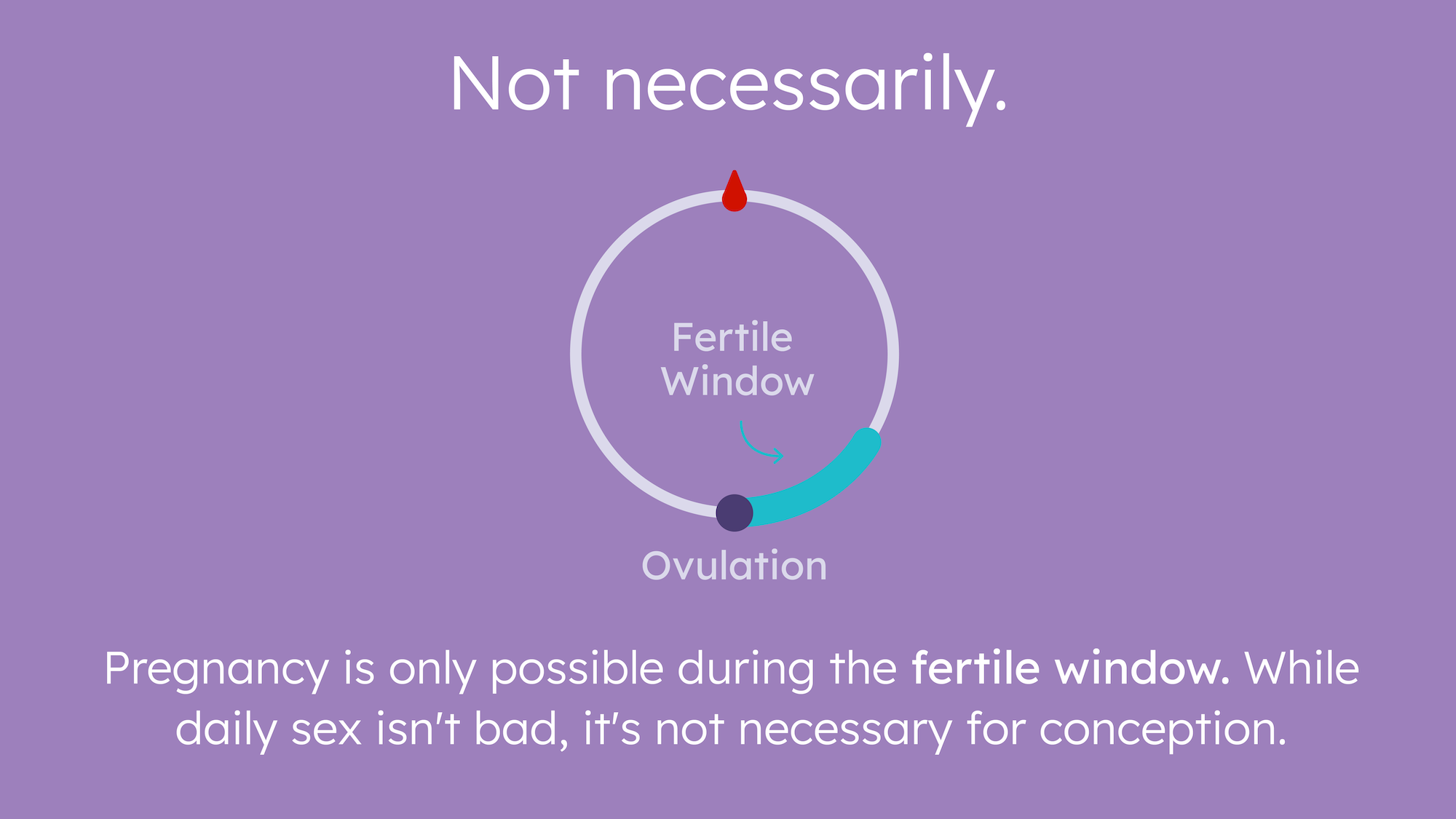
Having sex every day when trying to conceive isn’t bad. Having sex every day means you’ll absolutely have sex at the right time in your cycle – your fertile window.
The fertile window is the period where having sex can lead to pregnancy. It usually starts five days before ovulation (the release of an egg from the ovaries) and continues till the day after ovulation.
Having sex every day or every other day during fertile window means you have a higher chance at becoming pregnant.
Ovulation typically occurs around 14 days before your period if you have a 28-day menstrual cycle. But your ovulation period might be earlier or later depending on your cycle length. A typical cycle length ranges from 21 to 35 days. Your cycle length might also change month to month.
So how do you pinpoint when you’re about to ovulate?
You can use an ovulation predictor kit to know your ovulation timing. Traditional LH (luteinizing hormone) tests, like Proov Predict, can help you pinpoint your 2 most fertile days. But, to see your longest possible fertile window, you’ll want to try a test that measures E1G (an estrogen marker) like Proov Complete.
The sperm can live in your reproductive tract for three to five days. So when you have sex during your fertile window, the sperm can fertilize the egg, which can lead to a pregnancy.
You can also tell when you’re about to ovulate by checking your vaginal discharge regularly. If your discharge is wetter and looks more transparent, slippery, and sticky, it might soon be ovulation time.
You might feel pain in one side of your stomach during ovulation. This pain is called ovulation pain or mittelschmerz, which is German for “middle pain.” It occurs in over 40 percent of women during their reproductive years and might happen every month. But this pain isn’t a cause for concern.
Your sex drive might also be higher when you’re about to ovulate. So you might want to have sex more often during this period. And you can do so every day during your fertile window.
Still, you can remove any chances of guesswork by using at-home hormone test kits to know when you’re in your fertile period and when ovulation should occur.
Although you can have sex every day to conceive, evidence shows that focusing sexual activity on your fertile days can also raise your chances of pregnancy.
So if you can have sex daily without feeling stressed by the idea, you can do so. Some experts even recommend having sex every other day or every three days to increase your chances of getting pregnant. Whichever works for you is the best for you, as long as you and your partner have a healthy relationship with sex.
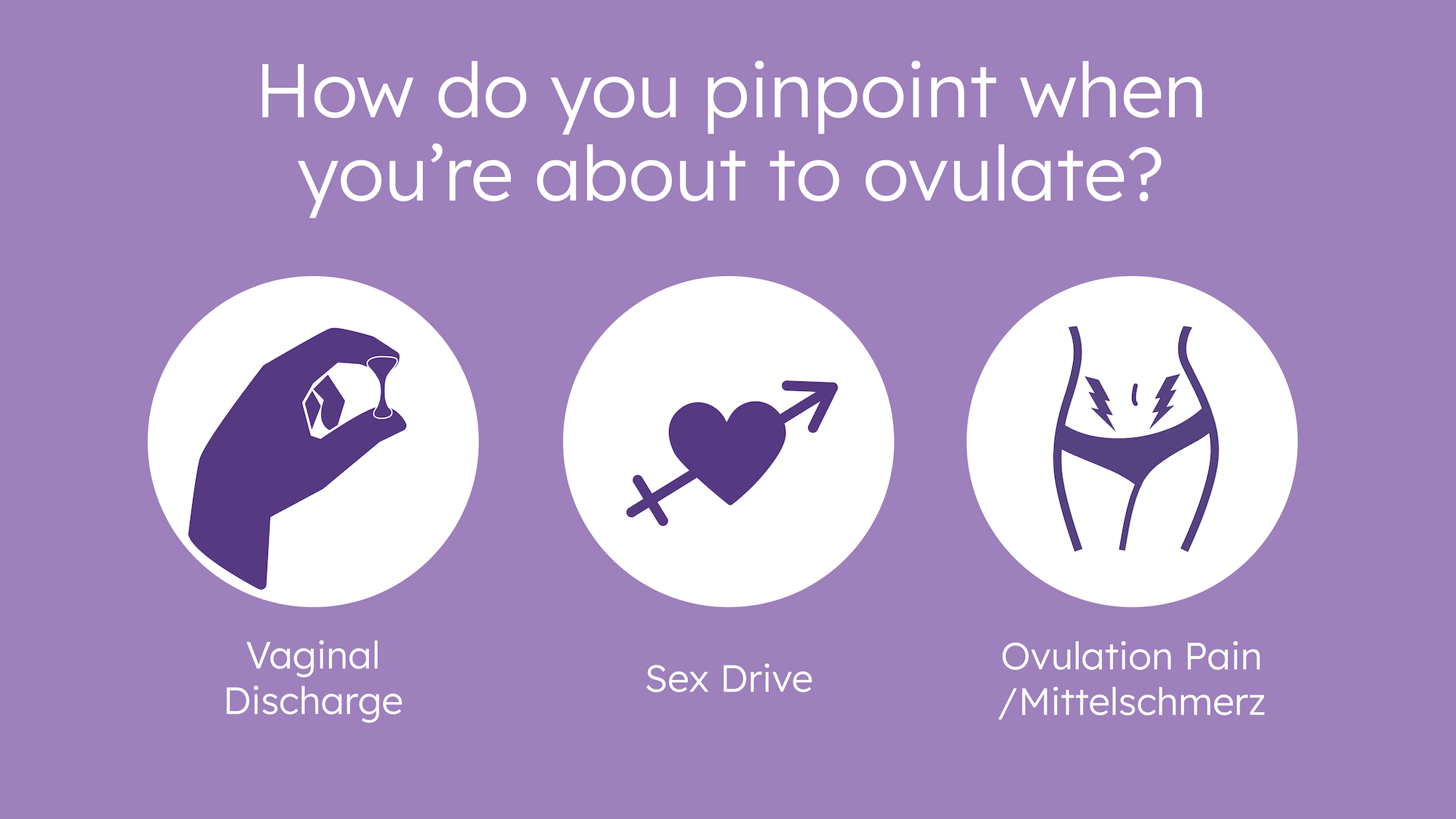
How often should you have sex during your fertile window?
You can have sex as often as you and your partner feel comfortable during your fertile period.
If you’re concerned that your partner’s ejaculate may not have enough healthy sperm because of how frequently you have sex, research has shown that ejaculating daily for up to two weeks doesn’t affect sperm health.
You might also crave sex more during your fertile days. So you can as well have sex every day of your fertile window.
Regardless, research suggests the chances of getting pregnant rise when you have sex more frequently and have it during your fertile window.
How long does it take to get pregnant?
For pregnancy to occur, a sperm has to fertilize an egg in the reproductive tract. The moment of conception — sperm meeting egg — happens after ovulation and might take up to six days after you have had sex. Next, the fertilized egg goes to the uterus to implant itself, and then pregnancy begins. This implantation process can take three to four days.
Most couples — about 85 to 88 percent — will get pregnant in the first year of having unprotected sex. About 40 to 60 percent of couples below the age of 35 will get pregnant within the first three months of sex.
What else can I do to raise pregnancy chances?
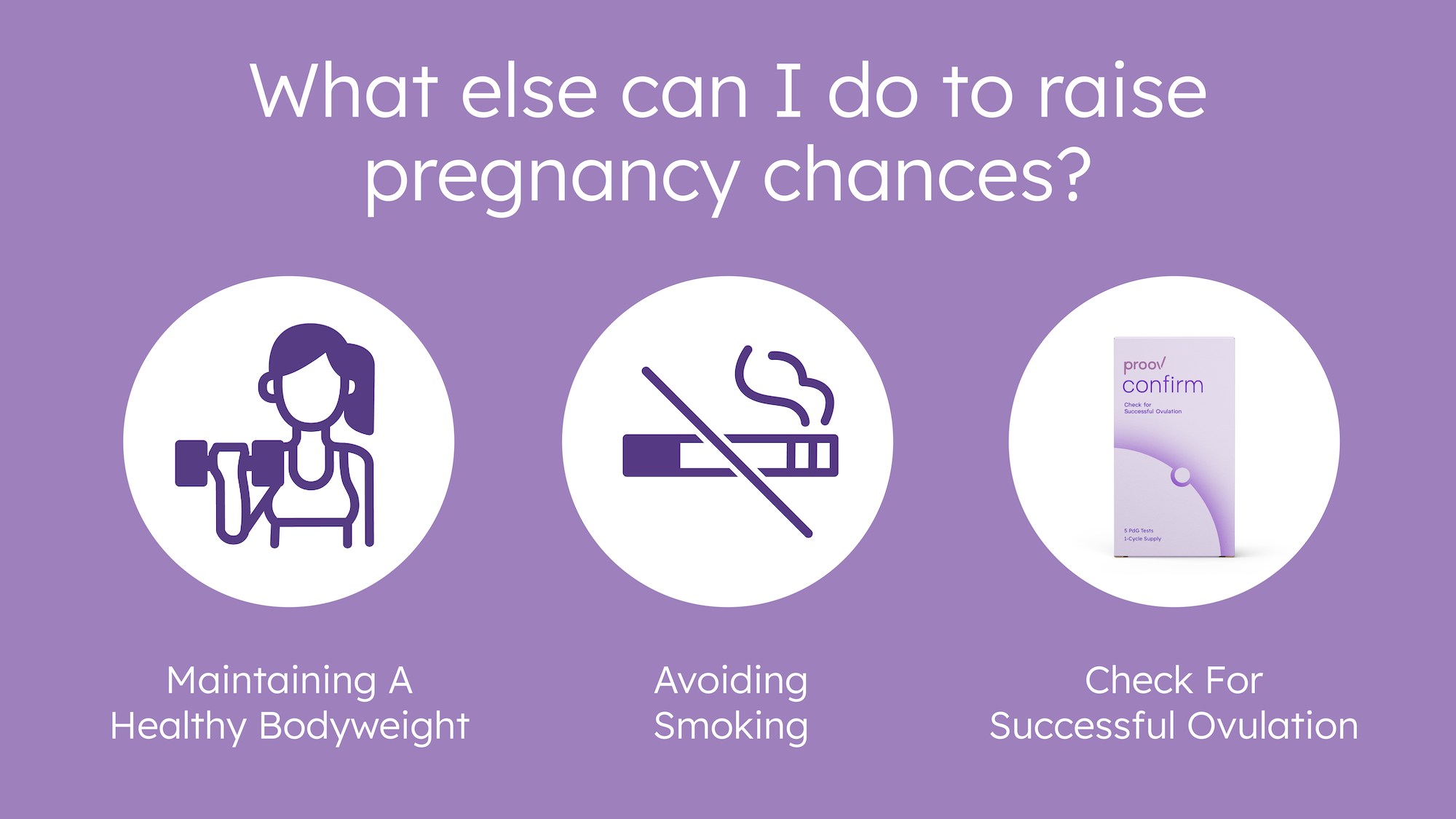
Asides from having frequent sex or sex during your fertile window, you can also increase your potential of becoming pregnant by:
Maintaining a healthy bodyweight
Your body weight might affect your chances of getting pregnant. If you’re underweight, overweight, or have obesity, you might have trouble becoming pregnant.
Try to maintain a healthy weight when trying to get pregnant and during pregnancy. You can speak with a doctor or a nutritionist about having a healthy weight, which can be different for everyone.
Avoiding smoking
It might be harder for you to become pregnant if you or your partner smoke. The US Food and Drug Administration (FDA) warns that smoking can cause trouble getting pregnant, affect hormones that help you get pregnant, harm the reproductive system, and affect sperm function.
If you smoke, you can consider quitting to raise your chances of becoming pregnant and having a healthy pregnancy. You can speak with your doctor about doing so; they might help you create a plan to stop smoking.
Checking for successful ovulation
Finding your fertile window actually only provides half of the ovulation picture. After predicting ovulation, you should always confirm it to ensure you’re ovulating successfully.
Successful ovulation refers to an ovulatory event where an egg was released and PdG (progesterone marker) levels remained elevated for long enough to allow for a higher chance of implantation and pregnancy. You can check for successful ovulation after your fertile window with Proov Confirm or Proov Complete.
Exercising regularly
Regular exercise or being physically active can increase your likelihood of getting pregnant. The World Health Organization (WHO) recommends doing at least 150 to 300 minutes of moderate-intensity cardio exercise or at least 75 to 150 minutes of vigorous-intensity aerobic activity throughout a week.
Even when you become pregnant — except if your doctor recommends otherwise — you can continue exercising at least 150 minutes of cardio exercises a week.
Having a well-balanced diet
A healthy diet is good for everyone, just as adequate sleep and exercise are. When you’re trying to get pregnant, having a variety of foods, including foods rich in whole grains, vegetables, unsaturated fats, and fish, can improve your chances of getting pregnant.
Using sperm-friendly lubricants during sex
Using some lubricants during sex might not be a good idea when trying to get pregnant. Some of them can affect sperm function and reduce your likelihood of getting pregnant.
When shopping for lubricants, look for sperm-friendly or fertility-friendly ones. Most of them are FDA-approved, and you can be sure they are fertility-friendly. These are the types you should use when you want to have sex to become pregnant.
There’s nothing wrong with having sex every day when trying to get pregnant. If you’re up for it, go for it. But don’t feel too pressured to have frequent sex. Having sex every two or three days and during your fertile window works too.
Need additional support on your journey to pregnancy? Proov is here to help!

